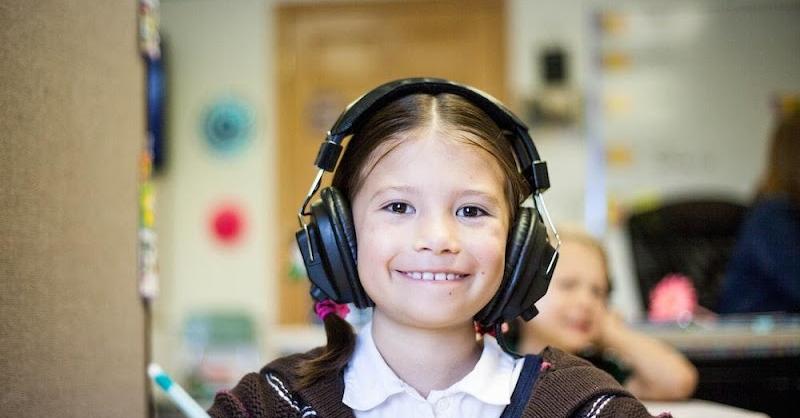Childhood is often compared to clay, malleable and ready to be shaped. The first few years of a child’s life, especially when it comes to education, play an instrumental role in determining their personality and approach to life. Early education isn’t just about basic literacy or numeracy; it’s about instilling a love for learning and laying the foundation for overall personality development. While every aspect of early education plays a role in this, there are specific areas that particularly stand out. Here are five such areas that significantly contribute to students’ personality development.
-
Contents
Social Skills and Group Dynamics: Learning to Play and Interact
One of the most evident aspects of personality development in early education revolves around social skills. School isn’t just a place for academic learning; it’s where children learn to interact, communicate, and work in groups. Whether it’s during a group project, a playground session, or a simple classroom activity, children learn the nuances of social interaction.
In these settings, they understand the importance of listening, expressing their thoughts, cooperating with peers, and even leading when the situation demands. They also face scenarios where they need to manage disagreements or differences of opinion, teaching them negotiation, compromise, and, most importantly, empathy. These early interactions with peers lay the foundation for their communication skills, understanding of group dynamics, and ability to work in teams as they grow older.
-
Reading and Literacy Development: The Building Blocks of Comprehensive Understanding
Reading isn’t just about recognizing letters and forming words; it’s about understanding, interpreting, and creating a connection with the text. Reading and literacy form the foundation upon which much of our learning rests. With a strong grasp of reading and comprehension, students can delve deeper into subjects, understand complex concepts, and think critically about what’s presented to them.
Teachers who specialize in reading and literacy, particularly those who have pursued advanced degrees like an online masters in reading and literacy, bring specialized knowledge and methodologies to the classroom. They don’t just teach kids how to read; they instill a love for reading. They use a variety of tools and techniques, ensuring that each child is catered to based on their unique learning style. When children grasp reading with depth and interest, it fosters a habit of inquiry and curiosity. This ability to question, understand, and assimilate information not only helps academically but also shapes their thought processes, perspectives, and, eventually, their personalities.
-
Cognitive Skill Enhancement: Boosting Analytical Thinking and Problem-Solving
As children grow, so does their realm of understanding. Early education plays a pivotal role in sharpening a child’s cognitive abilities, enabling them to analyze situations, solve problems, and think logically. Simple classroom activities, like puzzles, games, or even basic math problems, are designed to challenge their minds, pushing them to think and act.
Early educators focus on creating an environment where children aren’t just spoon-fed information but are encouraged to seek solutions themselves. For instance, if a child encounters a challenge, instead of offering a direct solution, teachers guide them with questions or hints, letting them arrive at the answer. This approach ensures that children develop confidence in their abilities, become self-reliant, and, most importantly, become keen problem solvers. Over time, this method of learning helps in honing their analytical thinking, a trait that becomes a defining aspect of their personality and approach to challenges later in life.
-
Emotional Development and Self-expression: Cultivating Emotional Intelligence
One of the most remarkable aspects of early education is its profound emphasis on understanding and expressing emotions. From the moment children step into the educational realm, they’re subtly taught to navigate the vast ocean of their feelings. It’s an invaluable life skill, shaping their emotional well-being and fostering a higher degree of self-awareness.
It’s not just about academic lessons in these formative years. The classrooms buzz with activities designed to spur self-expression. Be it through art, where a child might paint their feelings on a canvas, or through music, where rhythms and melodies allow them to express joy, sorrow, or curiosity. Storytelling, too, is a potent tool, enabling them to articulate their emotions, dreams, and fears.
Such exercises do more than offer an outlet for emotions; they lay the foundation for emotional intelligence. By understanding and managing their feelings at an early age, children are better prepared to handle life’s challenges.
-
Values and Moral Foundation: Instilling Ethics and Responsibility
A well-rounded early education goes beyond the ABCs and arithmetic. It delves into the more profound aspects of character development, primarily through the inculcation of values and moral principles. The seeds of understanding right from wrong, the essence of kindness, the importance of sharing, and the significance of respect are all sown during these initial years.
Teachers, especially those with specialized training like an online master’s in reading and literacy, play a pivotal role in this. With carefully chosen stories and interactive sessions, they introduce children to scenarios that challenge their moral compass. These situations allow children to discern for themselves the values they wish to uphold.
Furthermore, curricula are often designed to reinforce these lessons. They intertwine academic content with ethical dilemmas, making the learning process more holistic. As children learn about history, science, or literature, they’re also subtly learning about fairness, courage, perseverance, and responsibility.
These foundational lessons, imbibed at such a young age, significantly influence a person’s ethical compass as they grow.
Conclusion
The profound impact of early education on a student’s personality development cannot be overstated. From nurturing emotional intelligence to laying down the bricks of a robust moral foundation, the skills and values imbibed during these formative years accompany an individual throughout their life. As educators and stakeholders in the future of our children, recognizing and fostering these aspects ensures not just academic success but the growth of well-rounded, empathetic, and responsible adults.
